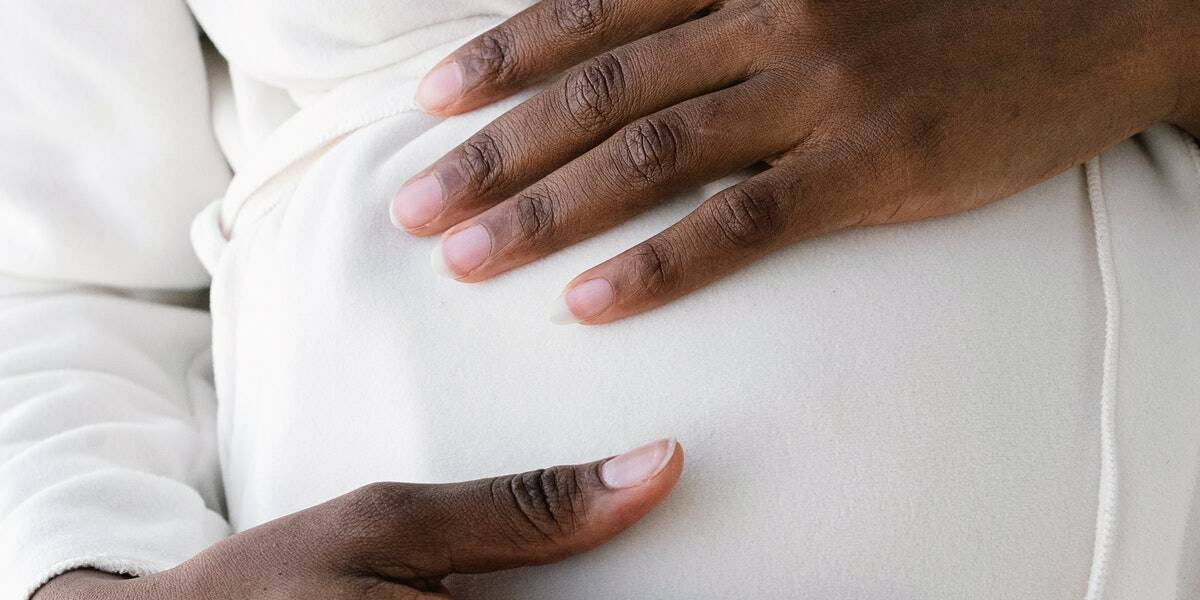Some women experience flu-like symptoms in the days before labor begins.
These symptoms may include fever, body aches, congestion, and a general feeling of being unwell. If you are experiencing any of these symptoms, call your doctor and ask if you need to come for a check-up.
If you are pregnant and have a fever, body aches, and chills, you may be experiencing early signs of labor. However, it’s also possible that you have the flu. So, what’s the difference?
Every pregnancy is unique—the labor, symptoms, and all the changes that occur in our bodies before and after delivery. For example, you probably wonder what the flu-like symptoms before labor could entail.
It’s common for pregnant women to have a runny nose or cough before labor, but every situation is different.
Before we go any further into the flu-like symptoms topic, it is critical and highly suggested that you consult with your healthcare professional about any symptoms that concern you. So, with that said, let’s get started.
As an Amazon Associate, I earn from qualifying purchases. The links below may be affiliate links. Please read my disclosure policy for more information.
Flue-like symptoms: What You Should Know

Flu-like symptoms are never a good thing, but they can be especially worrisome when you’re pregnant. Early in pregnancy, they might signal you’re getting sick. Later, they could signify that you’re going into labor.
No matter what pregnancy stage you’re in, you must call your doctor if you have flu-like symptoms. They can help you determine what’s happening and whether you need any treatment.
In most cases, flu-like symptoms are just a minor annoyance. But they can sometimes signal that something more serious is going on. So it’s always best to check with your doctor to be sure.
Childbirth brings a mix of emotions, and one that moms experience is anxiety. However, some slight signs can help you notice when the labor is beginning and understand better what to expect.
Flu-Like Symptoms: Common Signs
Having a cough, runny nose, and experiencing changes in bowel movements can mean that the labor is about to begin. Some other flu-like symptoms can include:
- Sneezing
- Fatigue
- Coughing
- Backache
- Headache
These symptoms are common and routine, and the reason they occur is that your hormones are changing.
First, talk with your healthcare professional to share your symptoms and how long you have had them. Commonly, these symptoms occur two weeks before labor.
The Causes of Flu-Like Symptoms Before Labor

As you know, your body will go through many changes during pregnancy. For example, the immune system will decrease, meaning you’ll be more likely to catch a virus that can lead to flu-like symptoms.
These flu-like symptoms before labor can last for a few days, and it’s common in pregnancy. However, contact your healthcare provider if you’ve been having the symptoms for a long time.
Some symptoms to be aware of close to labor include:
- Vomiting
- Vaginal bleeding
- High fever
- Continuous cough
In addition, due to the Covid-19 pandemic, it’s essential to pay extra attention to the signs of the virus. Pregnant women are more exposed since the immune system is down.
These signs include:
- Fever
- Continuous cough
- Shortness of breath
- Loss of appetite
The Start of Labor: Emotions and Signs
The emotions at the start of labor can vary from woman to woman. Some may feel excited and anxious, while others may feel scared or apprehensive.
It is important to remember that every woman’s experience is different, and there is no wrong or right way to feel. Just go with the flow and let your body take over.
The slight signs of labor can vary from woman to woman but may include contractions, backache, and nausea.
The unmistakable signs of labor may include water breaking, contractions becoming regular and strong, and increasing labor pains.
In addition, most women are told to go to the hospital when their contractions are about 5 minutes apart and last for about 60 seconds each.
If you are uncertain if you are in labor, always consult with your doctor or midwife.
7 Signs of Labor

If you’re pregnant, you’re probably eagerly counting down the days until your baby is born. But even though you may be impatient, it’s essential to be aware of the signs that labor may be starting.
Knowing what to look for can help you be prepared and avoid surprises. See below the early signs of labor.
Contractions
Contractions are the most common sign that you are in labor. They are rhythmic and regular contractions of the uterus that become stronger and more frequent as labor progresses.
Many women start to experience contractions as one of the first signs of labor. Contractions are waves of muscle tightening that occur in your uterus.
They can be mild or strong and may occur sporadically at first or become more frequent over time.
If you’re feeling contractions, keep track of how often they happen and how long they last. If they’re getting stronger and more frequent, it’s a good indication that labor may start soon.
Water breaks
If your water breaks, it is another sign that you are in labor. The water breaking may be a sudden gush or a slow leak.
Many women experience regular and consistent contractions (also known as labor contractions) after their water breaks. If you are experiencing regular, consistent contractions and your water breaks, you are likely in labor.
Backache
Backache is a common sign of labor. The pain may be constant or come and go. It may get worse as labor progresses.
In addition, backache may be a sign that the baby is moving down into the pelvis. Some women experience backache throughout their pregnancies, while others only experience it in the last few weeks or days before labor begins.

Diarrhea or Constipation
Diarrhea and constipation are often signs that labor is beginning. This is because the body prepares for labor by emptying the bowels and bladder.
Nausea and Vomiting
Nausea and vomiting can be signs of labor. Generally, nausea and vomiting are caused by the release of hormones such as prostaglandins and oxytocin.
These hormones are released during labor to help the body prepare for delivery.
Feeling of Pressure
As labor begins, you may feel pressure in your pelvis or down your legs. The pressure can be a sign of labor because it is caused by the baby’s head pushing down on the cervix.
This pressure may cause the cervix to be thin and open, leading to labor.
Increased Urination
As the body prepares for labor, the muscles of the uterus may start to contract, and this can cause an increase in the amount of urine that is produced.
Other possible explanations for increased urination before labor include the increase in the hormone progesterone that occurs during pregnancy and the increase in the amount of water the body retains as it gets closer to labor.
Is it true you get sick before labor?

Yes, it’s common to feel sick before labor. Some women do report feeling sick to their stomachs or having other signs of illness in the weeks or days leading up to labor, but others do not.
In case of doubt, if you are feeling sick, it is best to consult with your doctor to see if there is anything else going on.
What happens if you have the flu when you enter labor?
It depends on the severity of the flu and the stage of labor. Generally, if a woman has the flu and is in labor, her labor may be slowed or stopped.
If the flu is severe, the woman may need to be hospitalized. Every case is unique. Consult your doctor to ensure that all goes well.
What triggers labor?
Labor can be triggered by several different things. Some of the most common triggers include contractions when the water breaks.
In addition, psychological factors such as stress or anxiety may trigger labor.
Conclusion
There is no need to panic if you experience flu-like symptoms before labor. However, it is essential to be aware of the signs and symptoms of labor to seek medical attention if necessary.
Consult with your doctor to discuss any concerns and get answers to any questions you may have. If you are pregnant, it is essential to get a flu shot to help protect yourself from the flu virus.
The flu can cause serious health problems for pregnant women and their unborn babies.
If you’re experiencing flu-like symptoms before labor. Many women go through the same thing. Just try to relax and enjoy the ride – you’re almost there!







